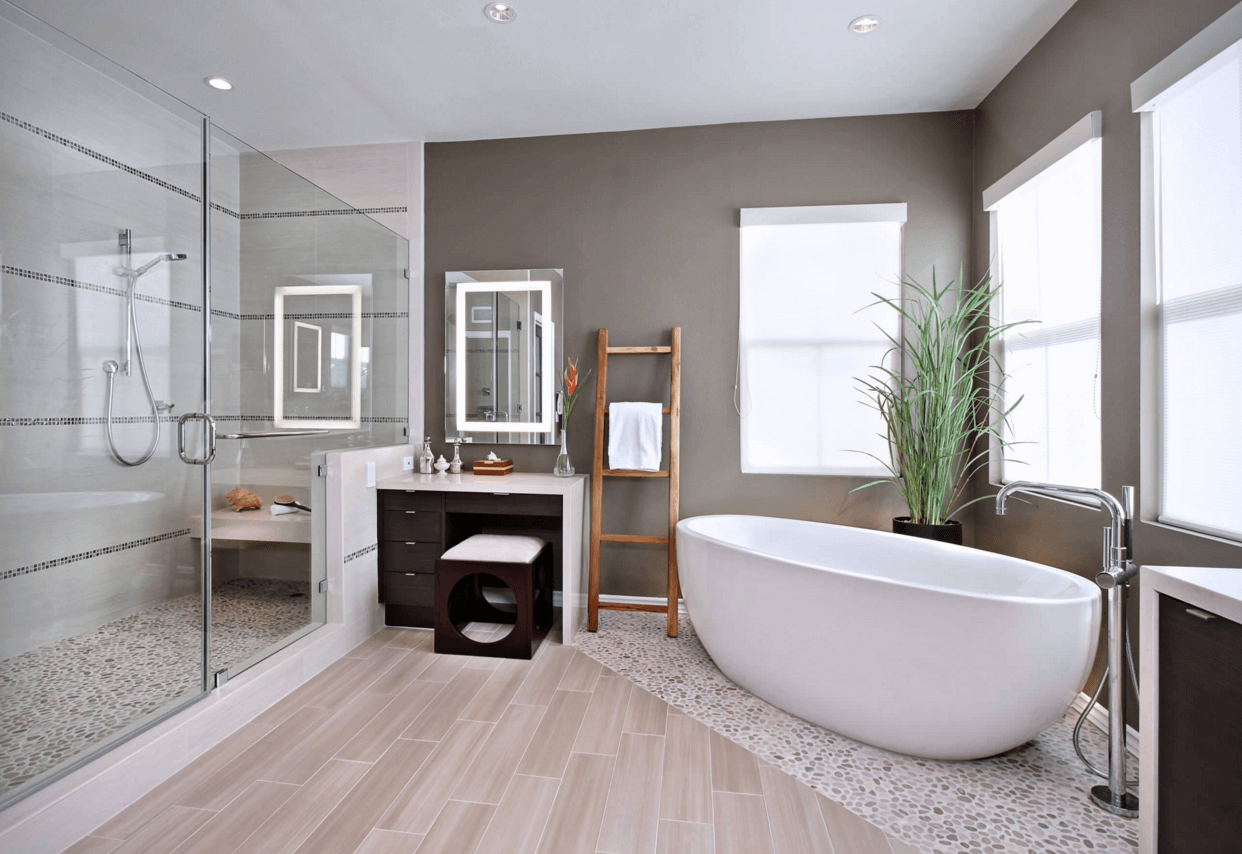Many homeowners don’t realize there is a difference between wall and floor tiles. Using the wrong ones may look good initially, but they will cause plenty of headaches later down the road. It’s time to update your bathroom; you want to make sure you pick out the right tiles for your needs. Here’s what you need to know:
What Makes Tiles Right For The Floor?
Think about how much wear and tear the floor in your bathroom encounters every day. When picking out new tiles, you need to make sure you select highly durable ones that can withstand plenty of fancy footwork. You need load-bearing tiles. While soft, porous materials may look nice, they aren’t as long-lasting and won’t hold up in a wet, high-traffic environment.
Since there is a lot of water in the bathroom, you also want a non-slip surface. In the UK, there is a slip rating system that helps homeowners pick out the ideal tiles. Look for floor tiles that have a high R-rating. The higher the rating, the better the grip.
Are Wall And Floor Tiles Interchangeable?
Once you find a tile design you like, it may tempt you to use it throughout your entire bathroom. Depending on the tile you selected, this may be a possibility. As a rule of thumb, you can almost always use floor tiles on the wall, but you should avoid installing wall tiles on the floor.
Floor tiles are generally about 20 percent heavier than wall tiles. Because of this, you need to make sure your walls are strong enough to support the additional weight. On the other hand, wall tiles are much lighter and thinner by comparison. They are not considered load-bearing, which is why you should never use them on the floor.
Does The Size Matter?
When buying floor tiles, you can pick any size you desire. However, the size you install may affect the appearance of your room. Large tiles may overwhelm a small space, whereas small tiles may take forever to fit in a larger bathroom.
On the wall, you can pick tiles of any size as long as they are the correct weight. Since larger tiles tend to weigh more, you may have difficulty finding tiles that your walls can support. You’ll also need more adhesive to ensure that they don’t slip over time.
Which Tiles Are The Best?
Most homeowners agree that porcelain and ceramic are perfect options for bathroom walls and flooring. These materials are easy to clean. However, it absorbs less water than ceramic and is also stronger and less prone to damage. Do refer to this guide from Moderniser on bathroom tiles ideas for small bathrooms, details of tile types, and frequent questions asked about tiling.
While you should avoid using ceramic outdoors, both types of tiles are perfectly suitable for bathrooms. When picking out tiles for your bathroom, durability should be at the forefront.







